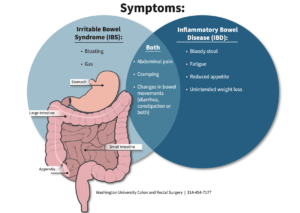What is a low fodmap diet?
My name is Leah and I am a nutritionist and naturopath who specialises in gut health.
One of the most common things I get asked is “What is and should I be on a low FODMAP diet?
In simple terms, a low FODMAP diet is an elimination diet that aims to reduce or eliminate certain fermentable carbohydrates from your diet.FODMAPs are a group of carbohydrates that are difficult to digest and absorb in the small intestine. They can cause digestive discomfort and symptoms such as bloating, gas, and diarrhea in people with irritable bowel syndrome (IBS).

I’ve seen firsthand the positive effects of a low FODMAP diet on my clients.
So what are FODMAPs?
FODMAP stands for:
Fermentable
Oligosaccharides,
Disaccharides,
Monosaccharides,
Polyols.
These are short-chain carbohydrates that are poorly absorbed by the small intestine and can cause digestive discomfort for some people.
FODMAPs can be found in a wide range of foods, including but not limited to: wheat, rye, onions, garlic, beans, lentils, certain fruits (such as apples, pears, and peaches), certain vegetables (such as asparagus, mushrooms, and cauliflower), and dairy products.
Low FODMAP diet elimination phase
Starting a low FODMAP diet involves eliminating high-FODMAP foods for a period of time (usually 2-6 weeks) and then gradually reintroducing them to determine which specific FODMAPs trigger your symptoms. Once you have identified your specific triggers, you can then modify your diet to avoid those foods that cause discomfort. An Elimination Diet such as this can be an alternative to blood tests for food allergies or intolerances.
It’s important to note that a low FODMAP diet is not intended to be a long-term solution. It is a diagnostic tool to help identify food triggers for those with digestive discomfort. Once you have identified your triggers, it is recommended to work with a nutritionist or dietitian to develop a long-term nutrition plan that meets your specific needs and promotes overall gut health.
Is a low FODMAP diet beneficial for everyone?
While a low FODMAP diet can be beneficial for some people, it is not appropriate for everyone. It’s important to work with a qualified healthcare professional to determine if a low FODMAP diet is right for you, as well as to ensure that you are still meeting your nutrient needs while following the diet.
